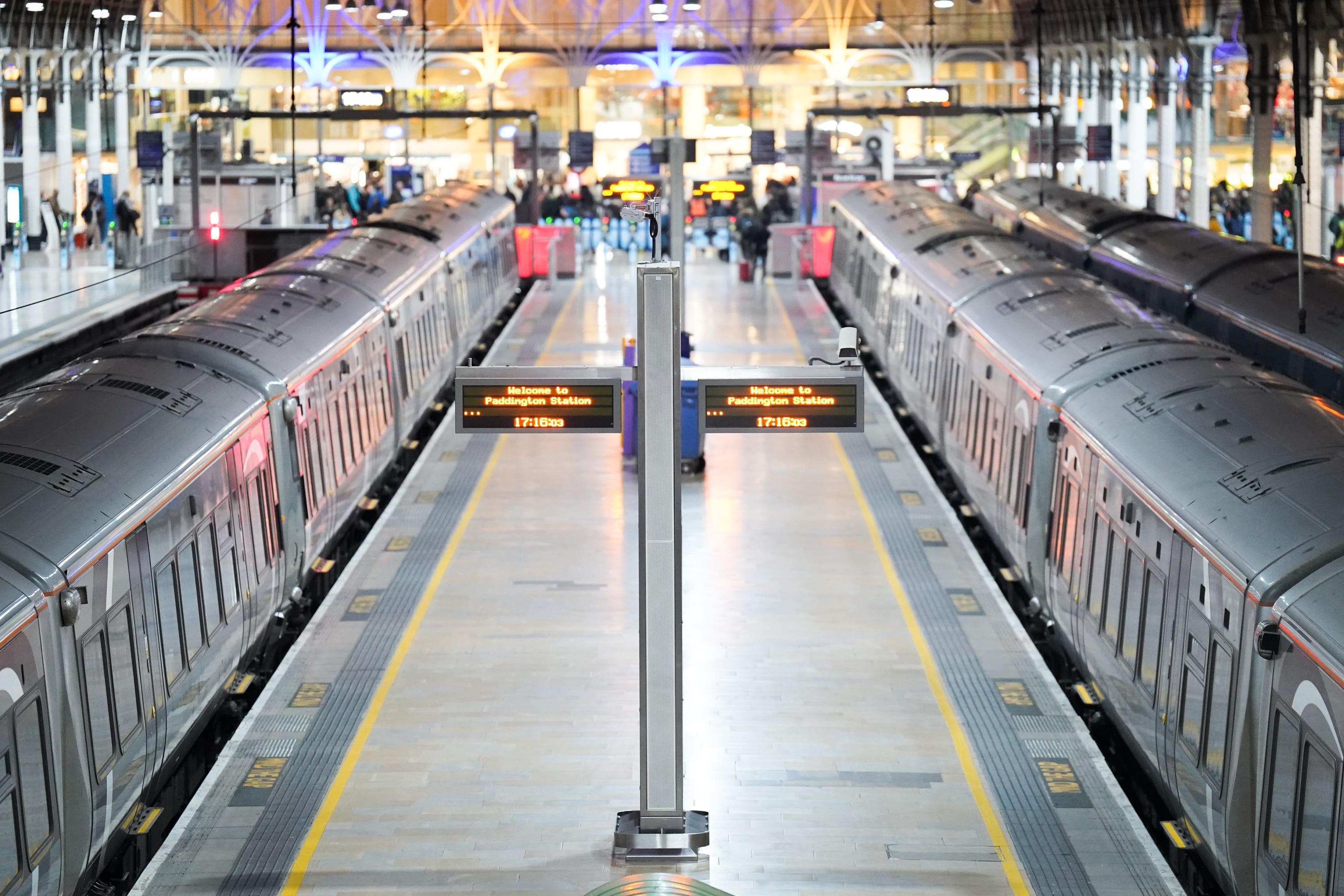Minimum service legislation ‘could provoke further conflict’, MPs warned
The Transport Select Committee questioned rail industry and union leaders about the legislation currently going through Parliament.

Plans to legislate for minimum levels of service during rail strikes could have “unintended consequences” of provoking further conflict, MPs have been told.
The Transport Select Committee questioned rail industry and union leaders about the legislation currently going through Parliament.
Jamie Burles, managing director of Abellio Greater Anglia, said the “overriding” objective of the industry is to avoid strikes and have good industrial relations.
He stressed the importance of having “absolute clarity” in the planned law about the requirements on employers and workers.
“If we do not have that, one of the unintended consequences would be further conflict or stress between the relationship.”
Tom Joyner, managing director of Cross Country Trains, told the MPs he has not been lobbying the Government to bring forward legislation on minimum levels of service.
The Strikes (Minimum Service Levels) Bill is set to be debated in the House of Lords on Wednesday.
TUC general secretary Paul Nowak said: “It’s time for the Government to ditch this Bill for good and protect the right to strike.
“No-one should be sacked for trying to win a better deal at work.
“This draconian legislation would mean that when workers democratically vote to strike, they could be forced to work and sacked if they don’t comply.”
Mick Lynch, general secretary of the Rail, Maritime and Transport (RMT) union, told the committee he believes the law would be a “disaster”.
Critical workers such as signallers and train drivers would be “conscripted” to work even if they voted legally to strike, he said.
“It will be a complete pig’s ear. It is unsafe, it will not work and will not serve passengers.”
Mr Lynch said the law would spark “novel” forms of industrial action as well as wildcat walkouts.
He said the Government often points to legislation in European countries, but highlighted recent strikes in France, Italy and Sweden.
Mr Lynch said the Government does not understand how the railways operate and is “making it up” in terms of the legislation.
He warned that industrial relations would be “poisoned” by the new law, with the prospect of large numbers of workers being sacked, leading to huge consequences for the rail industry.
Mick Whelan, general secretary of the train drivers’ union Aslef warned that the law would spark more strikes and other forms of industrial action.
He told MPs that unions have not been involved in industry workshops to discuss the planned legislation.
“In all my 38 years in this industry I cannot see how this can be done safely.
“There will be more action, and it will worsen industrial relations,” he said.
The union leaders said laying down a minimum level of service would raise expectations among passengers about how many trains would run during a strike.
Mr Lynch said that would lead to anger when the “inevitable chaos” means there will not be a minimum level of service.
Bookmark popover
Removed from bookmarks